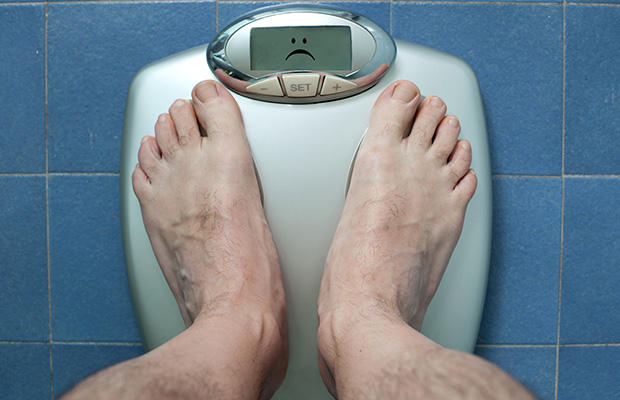In that respect at least, people aren’t much different from mice.
A recent study from The Ohio State University found that when mice were restricted from eating for a day, they would gorge on food the moment it hit their feeding bowls. After about a week of fasting and gorging, the mice had altered their metabolisms and gained the mouse version of a beer belly.
MORE: The Diets That Are Proven To Make You GAIN Weight
Although the restricted mice originally lost weight compared to a control group allowed to nibble freely, they eventually gained the weight back—concentrated in their abdomens.
By the end of the trial, the mice on a restricted diet didn’t weigh any more than the other mice, but since they gained belly fat they had higher risk for type 2 diabetes and heart disease.
Scientists believe fasting and bingeing caused miscues in the mice's metabolisms—leading to insulin resistance and an excess of blood sugar. When too much sugar makes its way into your blood, your body sends a message to store that sugar as fat. "That makes for a happy fat cell—but it's not the one you want to have," Martha Belury, the senior author on the study, said in a press release.
(Lose 10 pounds in one month—and keep it off for life—with The Good Gut Diet!)
The results of the trial led Belury to an overall lesson for human diets.
"You definitely don't want to skip meals to save calories because it could be setting you up for more fat gain instead of fat loss," Belury said in the release.
Despite this warning, other metabolism experts say the problem may not be in skipping meals, but instead in the way you eat afterward.

Don McClain, MD, PhD, director of the Center on Diabetes, Obesity and Metabolism at Wake Forest Baptist Medical Center, doesn't believe fasting is a bad thing. In fact, many studies have found intermittent fasting—eating regular meals one day and then restricting food the next—can be beneficial to your body, helping you burn more calories, retain muscle, and control blood sugar. (Learn more about fasting diets here.)
With that information in mind, McClain doesn't see the OSU mouse trial as a cautionary tale against skipping meals. Instead, he sees it as a reason to pay attention to portion size if you have missed mealtime. He claims people on once-a-day diets often eat more in a single meal than they would if they ate 2 to 3 times a day.
MORE: 5 Everyday Food Chemicals That Could Be Making You Gain Weight
And Rozanne Sukol, MD, a doctor of preventative medicine at the Cleveland Clinic specializing in nutrition and obesity, agrees. "We know when people fast they tend to overeat later, which spikes their insulin levels," says Sukol. "And you don't want to do that." Although Sukol says human metabolisms may not react the same way as a mouse on a fasting diet, a spike in insulin can cause excess sugar to be stored as abdominal fat as it did with the mice in OSU's research.
To avoid abdominal weight gain associated with skipping meals, Sukol believes most people are better off eating throughout the day. It's a surefire way to keep your blood sugar stable. "I personally never skip a meal," she says. "I love to eat and I feel better when I do."




